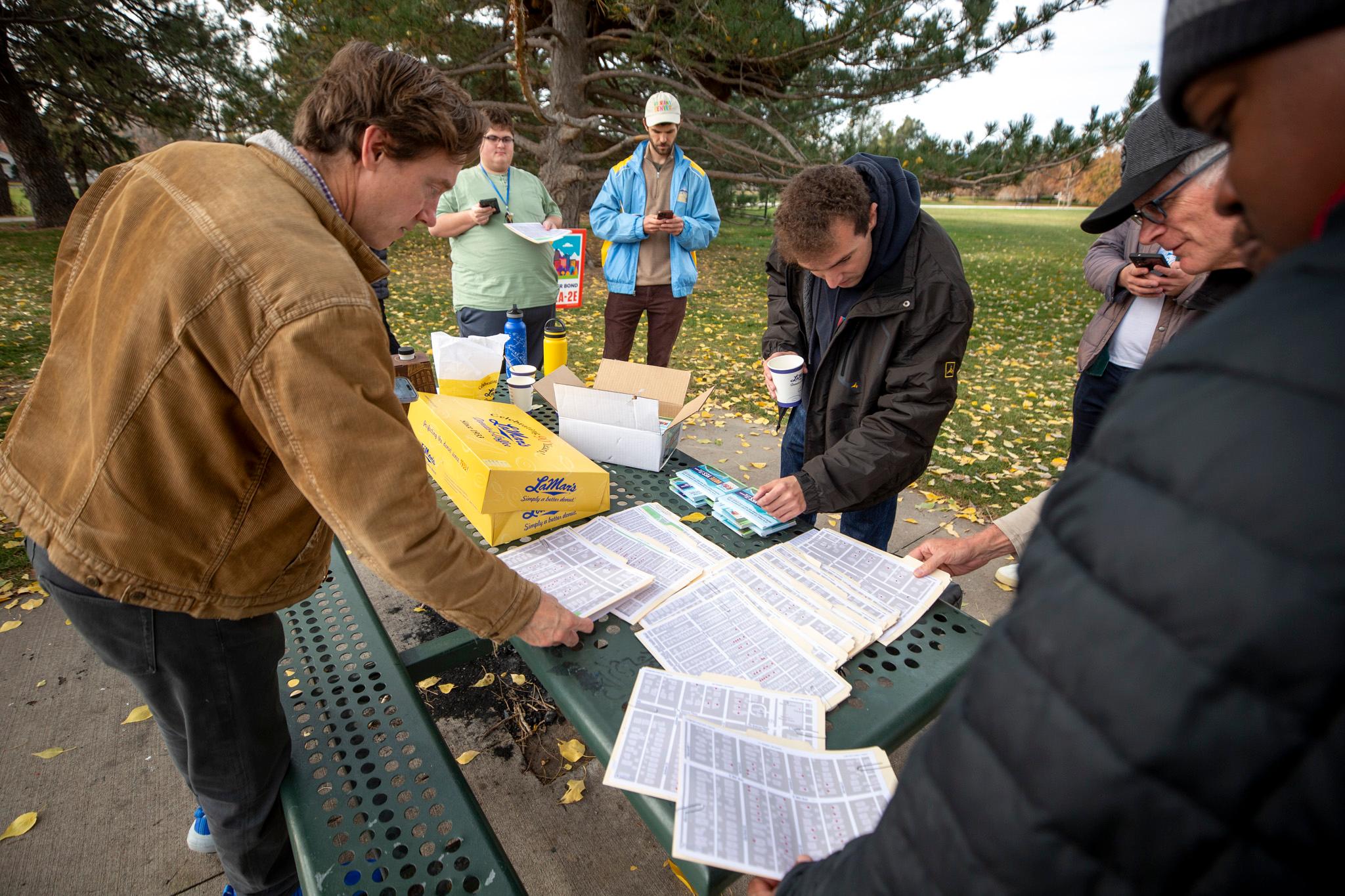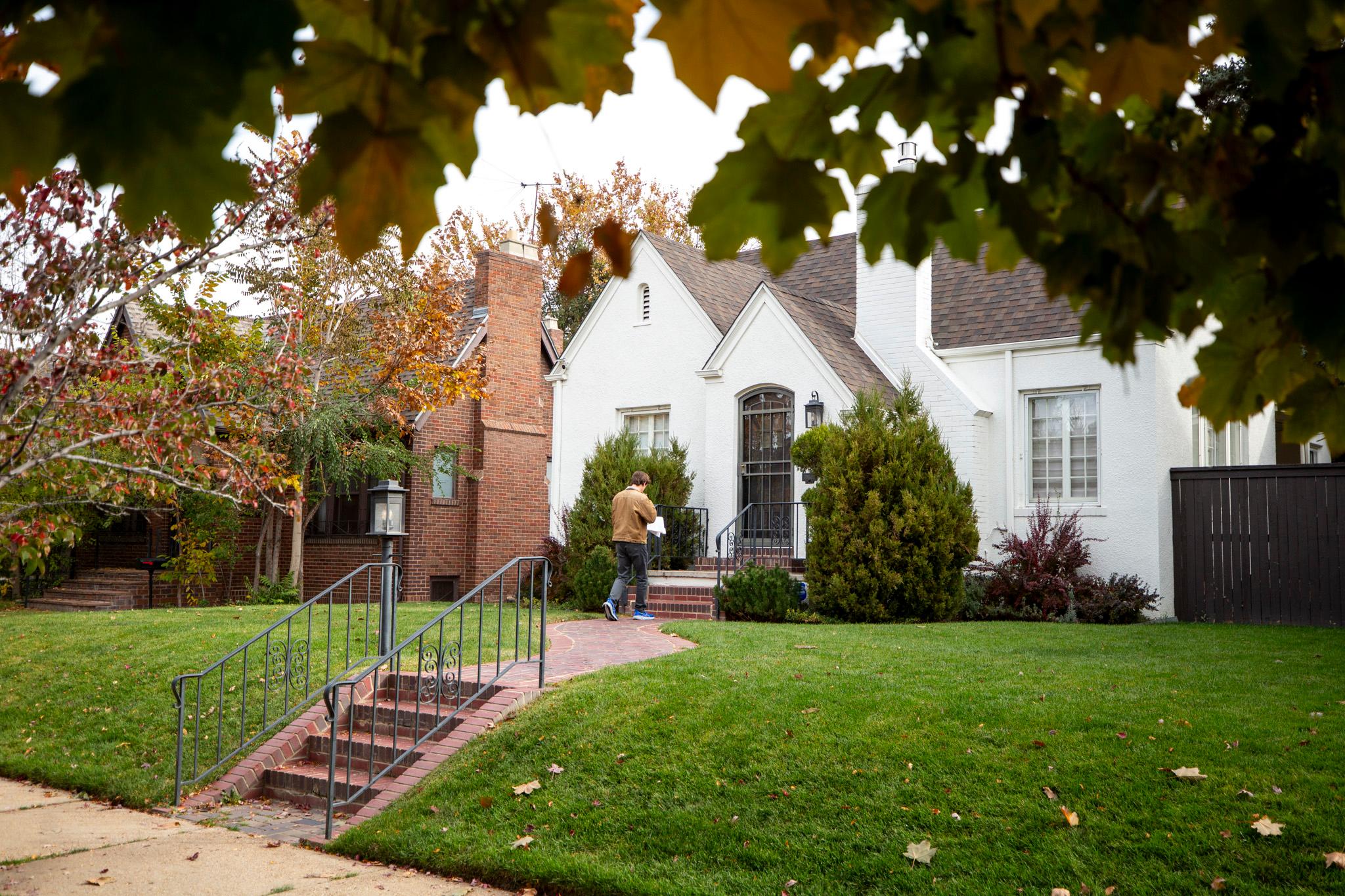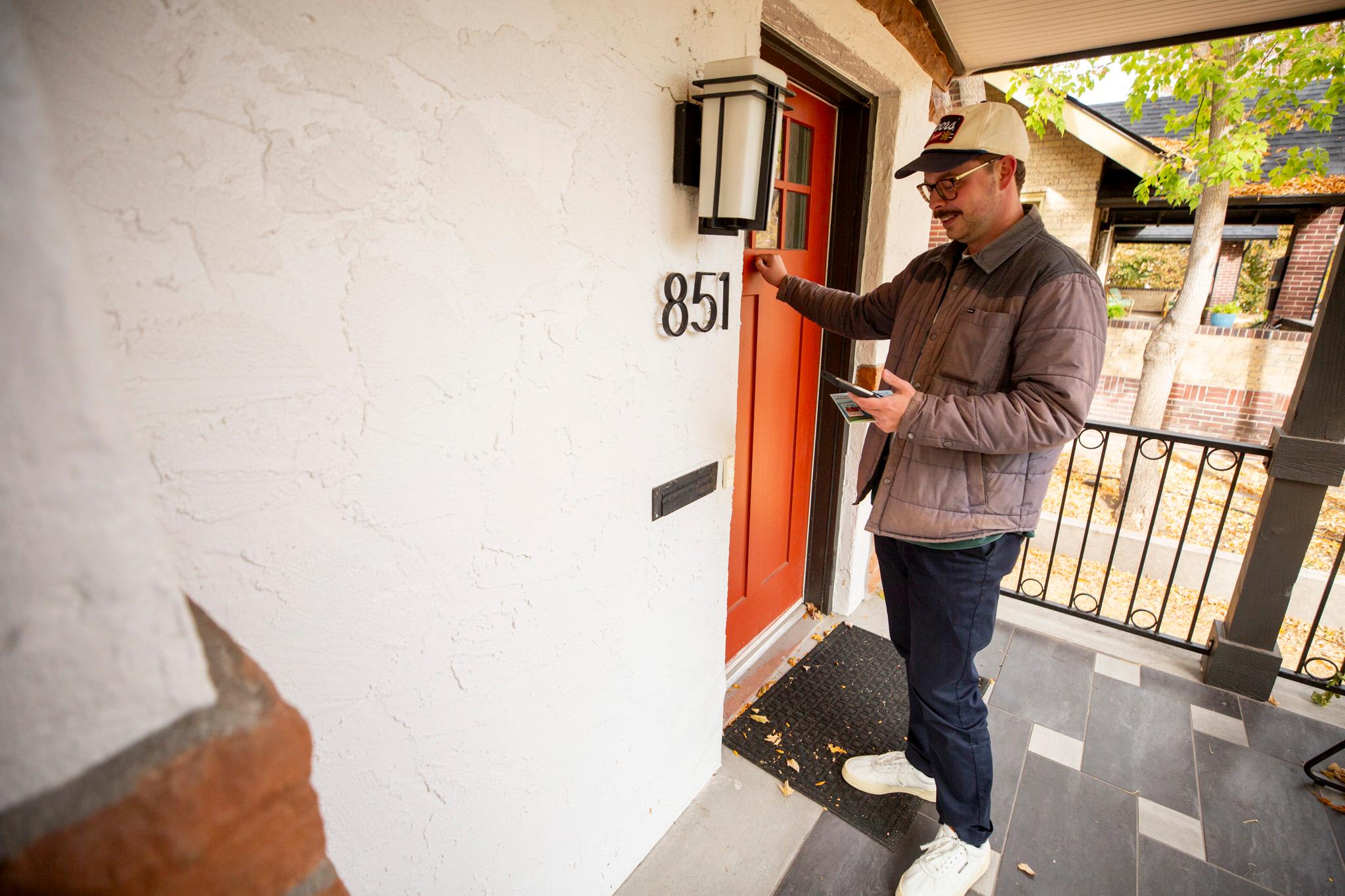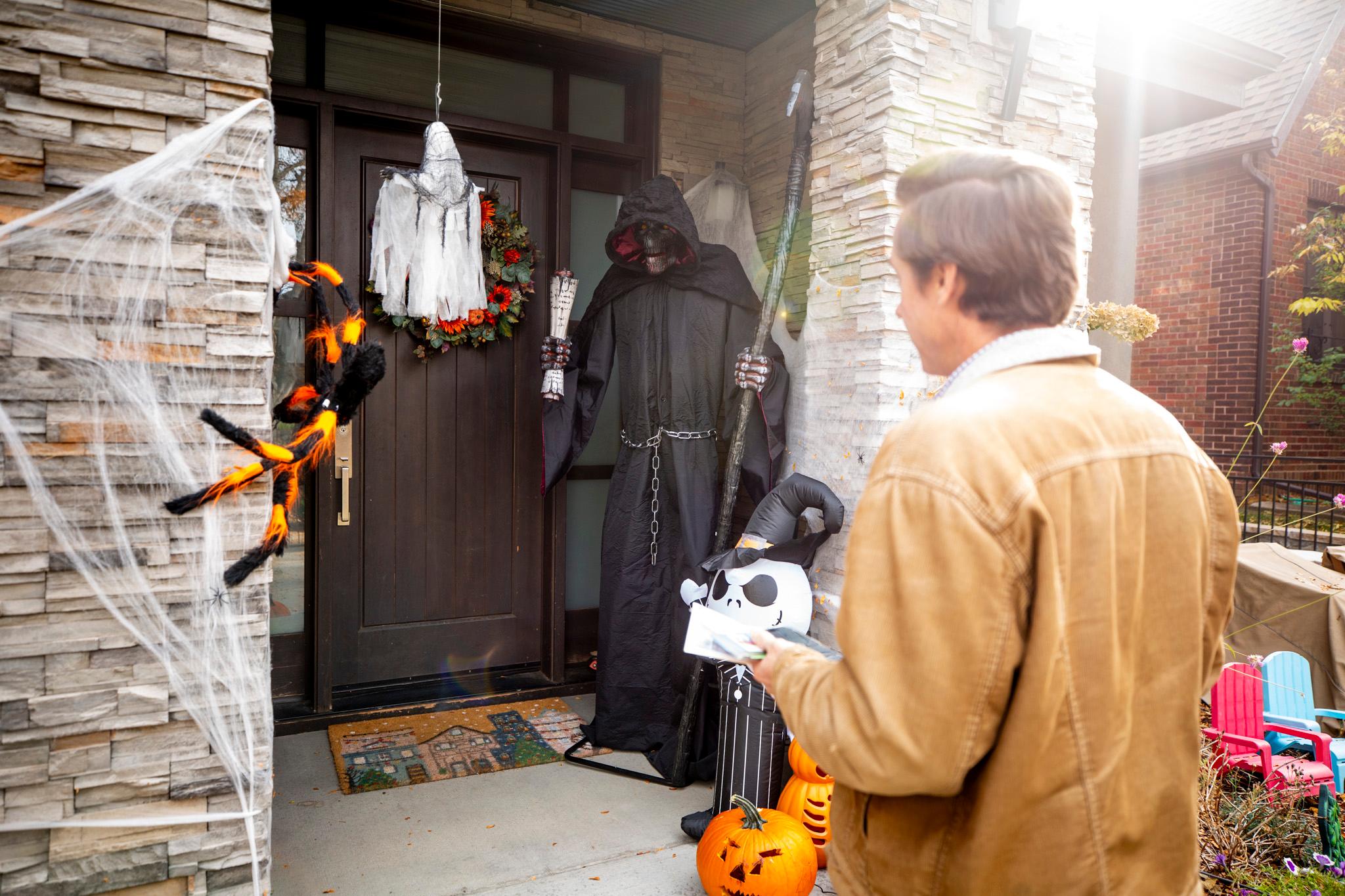On a cold Saturday morning, a group of volunteers gathered in Congress Park to sip coffee and snack on doughnuts before walking the neighborhood just days ahead of the election.
“Dearly beloved, we're gathered here today to win the bond,” Denver Mayor Mike Johnston joked to about a dozen people huddled around a picnic table.
Tuesday’s off-year election could be a pivotal moment in Johnston’s tenure. He’s asking voters to approve the $950 million debt package known as Vibrant Denver — one of the biggest ideas he has put before voters.
The campaigners’ goal was simple: get out the vote. Voter turnout in off-year elections like this tends to be low, making every vote even more valuable. And some worry that frustrated voters have tuned out politics.
“It turns out there's a lot going on in the world. Most folks have not put at the top of their priority list getting to this ballot yet,” Johnston said. “There’s seven other things to do on their kitchen counter this morning.”

Canvassers dealt with defensive dogs, skeptical grandmas and empty homes.
“I'm not trick-or-treating,” Johnston told a young girl and her grandmother.
“If you're soliciting, we don't do it,” the grandmother replied.
“I'm just the mayor,” said Johnston, who left a pamphlet behind.
Not long after, the girl’s mother, Megan McCormick, ran down the street to catch up with Johnston.
“She lives in Seattle and they've been getting a lot of shady solicitors, so hence her reaction,” McCormick said. “I'm like, ‘Mom, that was the mayor. You don't treat the mayor like that.’”
The weekend marked the final push of the campaign. As of the Secretary of State’s latest ballot count on Thursday, about 56,000 Denver residents had cast their ballots.
Elections during odd years typically have far lower turnout than when ballots feature federal races with high profile campaigns. Just 33 percent of the city’s registered voters filed their ballots in 2021 for the last bond election.

Voters may actually be a little more engaged this year, though. More voters in Denver and Colorado have voted early compared to 2021 and 2023, according to state elections data.
Johnston said he’s not concerned about low voter turnout or political disengagement.
“I think what we're trying to do is focus: This is just about repairing and improving infrastructure use every day,” he said. “A lot of things that are political right now, this is not one of them.”
Voter turnout for bonds on the ballot over the last 20 years has averaged about 28 percent in Denver, according to an analysis of election data from the Clerk and Recorder’s Office. Almost all of them have passed.
Supporters could spend nearly $2 million on the bond campaign.
The Vibrant Denver campaign has reported raising nearly $2 million from some of the city's most influential players, with the influential multimillionaire Kent Thiry topping the list with a $100,000 donation. They've spent money on everything from influencer marketing to campaign ads.
In contrast, the opposition has reported less than $10,000 in total fundraising.
Critics of the bond package have argued the city should instead focus on paying off its existing debt and eventually lowering property taxes, though the city says taxes will stay the same whether the measure passes or fails.
The bonds could come with up to about $1 billion in interest costs over several decades. The proposal also drew some criticism for the process of selecting projects and its funding priorities.
More broadly, some voters told Denverite recently that frustration with politics generally, as well as the ongoing controversy over Denver's use of car-tracking surveillance cameras, has raised questions for them about the bond.
Canvassing is not a science.
Levi Griffith, a member of the Denver Young Democrats, was one of the volunteers knocking doors on Saturday. His strategy was to be patient and try to build a genuine connection with prospective voters.
“I think generally if you just listen to people's complaints and hear them, it's less of a convincing kind of thing that you have to do as much as it is just a conversation,” he said.

Many of his knocks went unanswered. When people did answer their doors, a good chunk of them said they hadn’t voted yet and weren’t very familiar with the bond. Debbie Alther hadn’t heard of the bond, but questioned whether it was the right use of money at this point in time.
“My only questions would be, what other things would the money be used for?” Alther asked. “Is it more for food for kids, the kind of more urgent things than rec centers even?”
The bond can only pay for capital improvements — like new construction — and associated fees. And the property taxes that would fund the bond can’t be used for other purposes, either.
Griffith was able to catch John Palumbo as he left his house to drop off his ballot at Carla Madison Recreation Center before working out. He voted for four of the five bond measures — but was uncertain whether he voted against 2D (for city facilities) or 2E (for housing investment).
“There's some little things in there that made me pause,” Palumbo said.

Even Griffith said he’s had difficult conversations with friends about the bond, and he himself doesn’t agree with everything included in it.
“I think the measure for Park Hill [Park] was something like $70 million or something that they hope to get, and it's frustrating,” he said, referring to the long-running battle over the old Park Hill Golf Course.
Still, he voted for the measure, and advocated for it, because of the other projects included in the parks and recreation bond measure.
Campaign organizers said the door-knocking would continue until Election Day, which is Tuesday. Ballots are due by 7 p.m.
In addition to the bond package, Denverites are being asked to weigh in on a major change to the city’s at-large council elections and whether to repeal Denver’s ban on flavored tobacco, as well as renaming the Department of Excise and Licenses.
Denverite editor Andrew Kenney contributed to this article.











